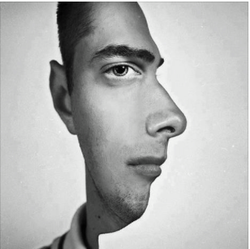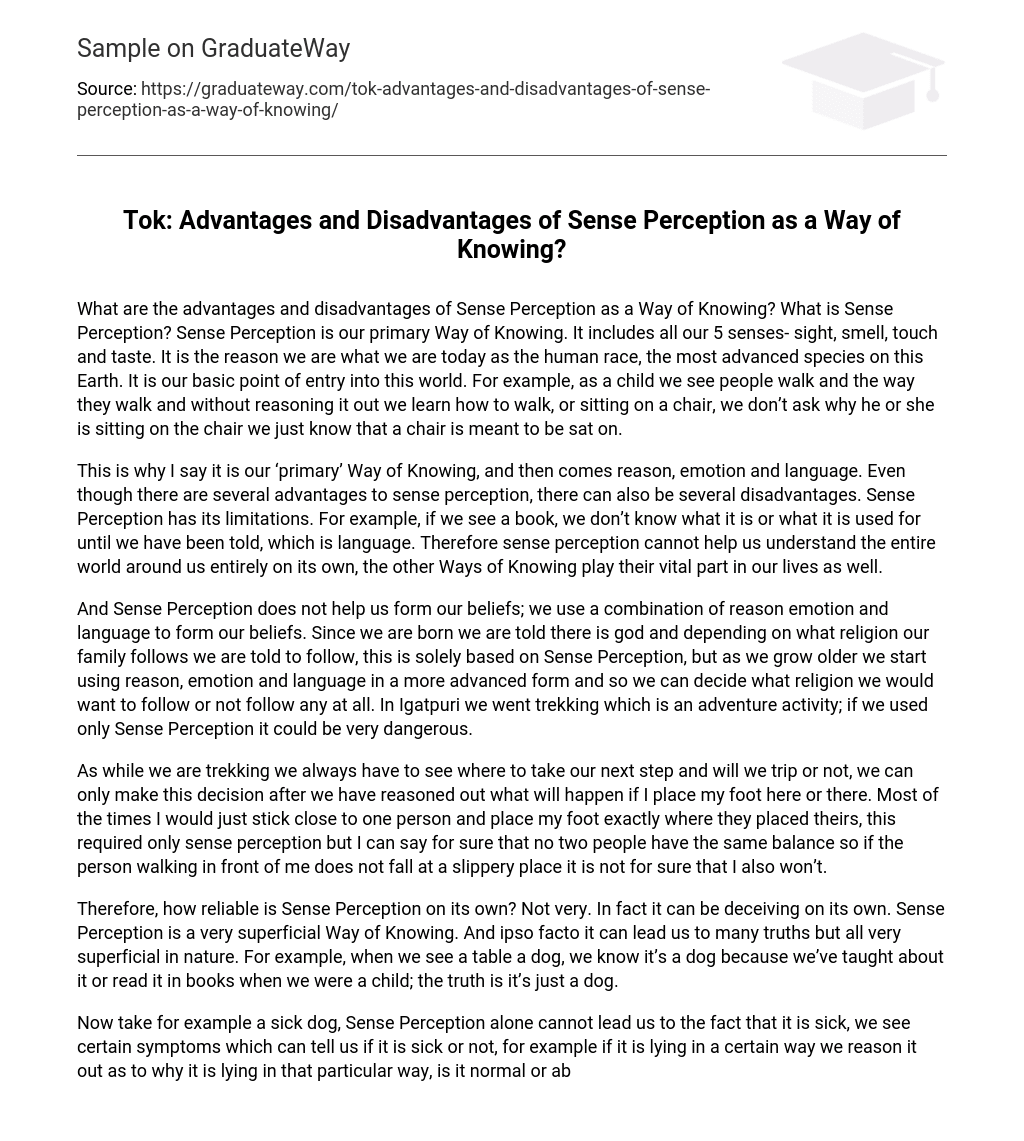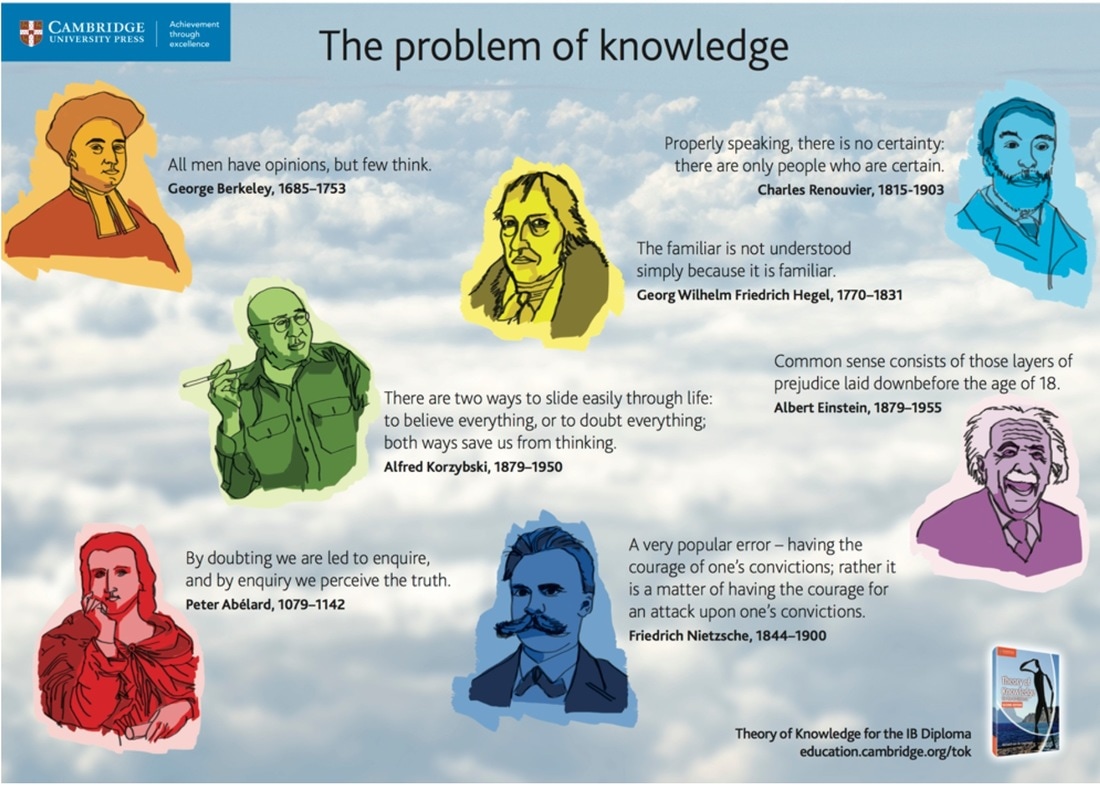Sense perception is the process by which we gather information about the world around us through our five senses: sight, hearing, touch, taste, and smell. It is a fundamental aspect of human experience and is essential for our survival and interactions with the world.
However, sense perception is not a perfect process. Our senses can be deceived or tricked, and our perceptions can be influenced by our prior knowledge, expectations, and cultural background. For example, an optical illusion can cause us to see something that is not really there, and our interpretation of a taste or smell can be influenced by the context in which it is presented.
In the field of philosophy, there is a long-standing debate about the reliability of sense perception. Some philosophers, known as empiricists, argue that sense perception is the primary source of knowledge about the world and that it is reliable. Others, known as rationalists, argue that our senses can be unreliable and that reason is a more reliable source of knowledge.
In the Theory of Knowledge (TOK) course, students are encouraged to consider the role of sense perception in the construction of knowledge. They are asked to think critically about the ways in which our senses shape our understanding of the world and to consider the limitations of sense perception.
One way to approach this topic is to consider the ways in which different senses can be deceived or mislead. For example, we can look at optical illusions and how they can cause us to see things that are not really there. We can also consider how our expectations and cultural background can influence our perceptions, such as the way that people from different cultures may have different interpretations of the same taste or smell.
Another way to approach this topic is to consider the ways in which different senses can be used to gather information about the world. For example, we can look at how scientists use instruments such as telescopes and microscopes to gather information about the world that is beyond the range of our unaided senses. We can also consider how different senses can be used in different fields, such as how musicians use their sense of hearing to create and interpret music, or how chefs use their sense of taste and smell to create and evaluate dishes.
In conclusion, sense perception is a crucial aspect of human experience and is essential for our interactions with the world. However, it is not a perfect process and can be deceived or influenced by our prior knowledge, expectations, and cultural background. In the TOK course, students are encouraged to think critically about the role of sense perception in the construction of knowledge and to consider its limitations.







